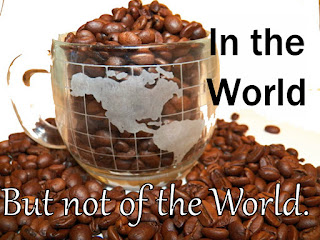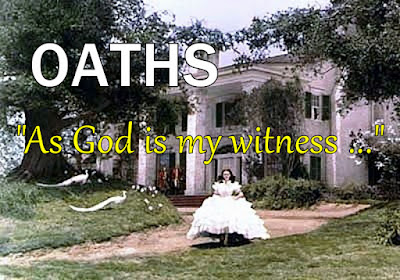OUR DINNER WITH JESUS
Luke 5:27-32
I recently ran across a photograph by David LaChapelle called, "The Dinner." (Search on Google Images if you'd like to see it). LaChapelle's work is shocking. The images push hard against middle-aged, middle-class, mid-west sensibilities.
"The Dinner" depicts the Last Supper. A traditional representation of Christ sits at the head of the table. The disciples are young men -- Latino, African American and white, gang bangers, skin heads, immigrants, and there's even a drag queen. One man, sitting in the foreground, is heavily tatooed.
For many of us living in the very homogenous midwest, the people around the table LaChapelle's photo aren't like us and our fellow church members. It pushes us across the carefully drawn and maintained lines of our comfort zones, and that's a problem.
That was the problem the Pharisees and other religious leaders had with Jesus attending a dinner party at the home of Levi, the tax collector. Levi's friends, other tax collectors, sinners and other disreputable characters, weren't like the Pharisees who represented the pillars of the Jewish community. These people dwelt at the fringes of acceptable society. No Pharisee would ever invite one of them to eat a meal with them, and no one who considered himself a righteous person would enter Levi's home for any reason.
These cultural lines should never be crossed, but Jesus did.
By crossing the lines of socially accpetable behavior and sensibilities, Jesus told Levi and his friends and the world that they were human beings created in the image of God and that they were welcome at his table, anytime, anywhere. By doing so, Jesus said to them, "God loves you and accepts you for who you are even with all your flaws, faults, sins and imperfections.
That's the message of God's grace that goes out to everyone. That's the message we all received. That's the message we celebrate each time we gather together in community for our own dinner with Jesus.
We call it Holy Communion, but it's also known as the Lord's Supper because Christ is the provider and host of this meal. Christ welcomes us all, with our flaws, faults, sins and imperfections and offers us a heaping plate of love and forgiveness.
Another name for Holy Communion is the Eucharist, the feast of thanksgiving. We give thanks for the unconditional love of God in whose image we are all created. The ultimate expression of that love is the life, death and resurrection of Jesus Christ, and we show our gratitude for the gift of our salvation and eternal life as well as the promise of Christ's final victory over the brokeness and sin of this world.
Our dinner with Jesus, whatever we call it is a celebration of joy, love, forgiveness, comfort, compassion and all the other things that come with the grace and presence of God among us. Pretty darn cool, eh? But we aren't meant to keep it all to ourselves. We are sent out to into our neighborhoods and community to share it. That means crossing the lines of our comfort zones, our preconceptions and our prejudices.
And I'm not talking about taking out doggie bags and day-old left-overs in plastic containers. I'm talking about fresh, heaping portions of God's best offered to the searchers and the seekers, the Levis and his friends who don't look, talk, think or live like us; to all who dwell on the fringes of acceptable society. This means getting out of our comfort zone and going to where they are to to building relationships of trust and acceptance.
When we become personally involved and walk with our neighbors, the invitation comes across loud and clear in our actions and words: "Come and join us. You're welcome at the table of the Lord."
I recently ran across a photograph by David LaChapelle called, "The Dinner." (Search on Google Images if you'd like to see it). LaChapelle's work is shocking. The images push hard against middle-aged, middle-class, mid-west sensibilities.
"The Dinner" depicts the Last Supper. A traditional representation of Christ sits at the head of the table. The disciples are young men -- Latino, African American and white, gang bangers, skin heads, immigrants, and there's even a drag queen. One man, sitting in the foreground, is heavily tatooed.
For many of us living in the very homogenous midwest, the people around the table LaChapelle's photo aren't like us and our fellow church members. It pushes us across the carefully drawn and maintained lines of our comfort zones, and that's a problem.
That was the problem the Pharisees and other religious leaders had with Jesus attending a dinner party at the home of Levi, the tax collector. Levi's friends, other tax collectors, sinners and other disreputable characters, weren't like the Pharisees who represented the pillars of the Jewish community. These people dwelt at the fringes of acceptable society. No Pharisee would ever invite one of them to eat a meal with them, and no one who considered himself a righteous person would enter Levi's home for any reason.
These cultural lines should never be crossed, but Jesus did.
By crossing the lines of socially accpetable behavior and sensibilities, Jesus told Levi and his friends and the world that they were human beings created in the image of God and that they were welcome at his table, anytime, anywhere. By doing so, Jesus said to them, "God loves you and accepts you for who you are even with all your flaws, faults, sins and imperfections.
That's the message of God's grace that goes out to everyone. That's the message we all received. That's the message we celebrate each time we gather together in community for our own dinner with Jesus.
We call it Holy Communion, but it's also known as the Lord's Supper because Christ is the provider and host of this meal. Christ welcomes us all, with our flaws, faults, sins and imperfections and offers us a heaping plate of love and forgiveness.
Another name for Holy Communion is the Eucharist, the feast of thanksgiving. We give thanks for the unconditional love of God in whose image we are all created. The ultimate expression of that love is the life, death and resurrection of Jesus Christ, and we show our gratitude for the gift of our salvation and eternal life as well as the promise of Christ's final victory over the brokeness and sin of this world.
Our dinner with Jesus, whatever we call it is a celebration of joy, love, forgiveness, comfort, compassion and all the other things that come with the grace and presence of God among us. Pretty darn cool, eh? But we aren't meant to keep it all to ourselves. We are sent out to into our neighborhoods and community to share it. That means crossing the lines of our comfort zones, our preconceptions and our prejudices.
And I'm not talking about taking out doggie bags and day-old left-overs in plastic containers. I'm talking about fresh, heaping portions of God's best offered to the searchers and the seekers, the Levis and his friends who don't look, talk, think or live like us; to all who dwell on the fringes of acceptable society. This means getting out of our comfort zone and going to where they are to to building relationships of trust and acceptance.
When we become personally involved and walk with our neighbors, the invitation comes across loud and clear in our actions and words: "Come and join us. You're welcome at the table of the Lord."



Comments
Post a Comment